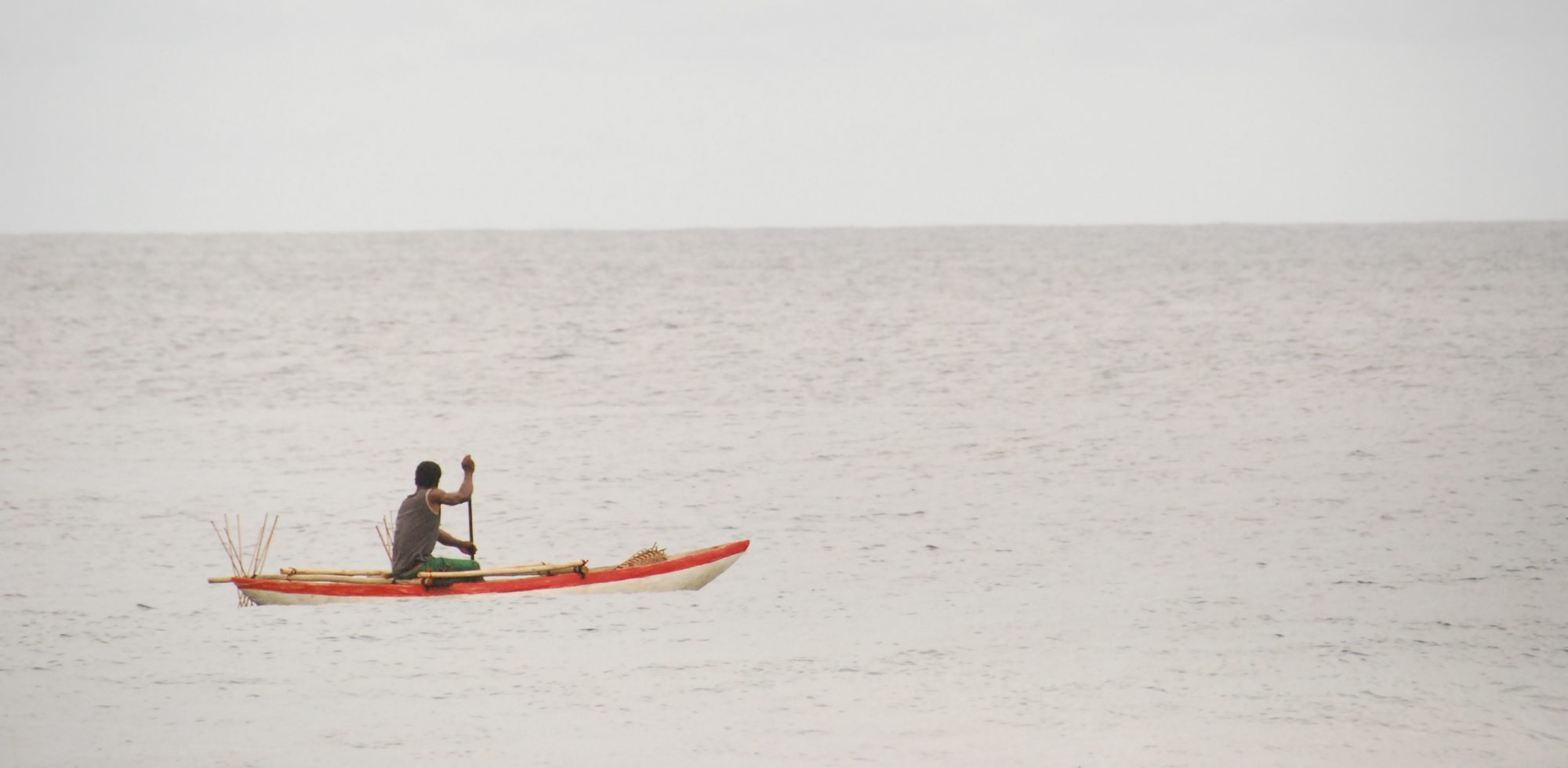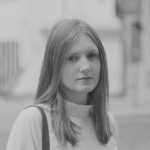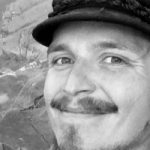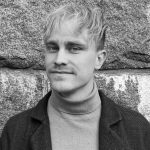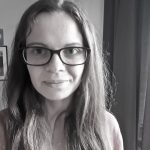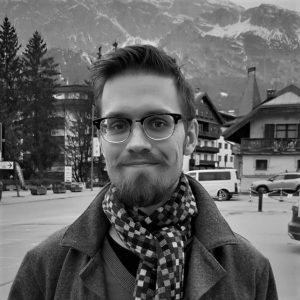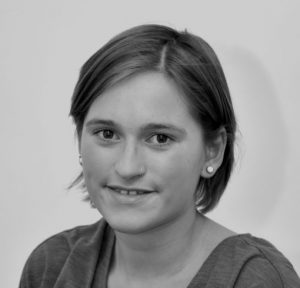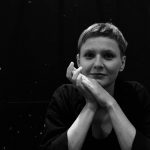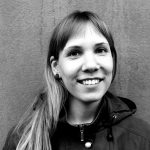Pierre Auzerau, M.A.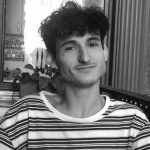
Email: pierre.auzerau(at)helsinki.fi
My doctoral project represents an effort to document the quest for legal recognition of “French” Guiana’s Indigenous Peoples, namely the Kali’na, Lokono, Pahikweneh, Teko, Wayana, and Wayãpi. They represent about 10,000 Indigenous people, all entitled to French nationality and to all the (individual) rights that this entails. However, recognition of their Indigenous rights — and their existence to a greater extent — is deemed unconstitutional by the French state.
In my research, I explore how Indigenous Peoples’ battles for recognition are juridified, i.e. how Indigenous activists represent Indigenous People(s) as legal subjects holding specific rights and use the human rights language in their demands for recognition. In addition to bringing empirical evidence to the concept of juridification, my project seeks to depart from previous works, which have often portrayed Guiana’s Indigenous Peoples primarily as victims and/or survivors, either of colonisation or of French policies. Through a deterritorialised ethnography, I propose an epistemological shift, focusing on desire (Tuck, 2009), here the desire for rights and recognition.
This research is supervised by Maarit Forde, Elina Hartikainen and Pirjo Virtanen, and is conducted in close collaboration with the Indigenous studies department at the University of Helsinki.
Sidney Castillo, M.A.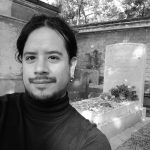
Email: sidney.castillo(at)helsinki.fi
My research examines notions of well-being in the context of shamanic rituals and ayahuasca practices in the Peruvian rainforest and compares these indigenous notions with ideas underlying the therapeutic use of psychoactive substances in the Global North. The project is based on ethnographic fieldwork among the Kichwa-Lamista and the Awajún, two indigenous groups of northeastern Peru.
The use of the ayahuasca vine (Banisteriopsis caapi) has a long-standing application for purging purposes among the indigenous peoples of the Amazon basin. In combination with plants such as chacruna (Psychotria viridis), it yields a psychoactive substance that induces bodily and visionary experiences. The use of this brew has been a staple of indigenous and mestizo Amazonian well-being practices. In the past twenty years, it has crossed borders into global spiritual and wellness trends, in both traditional and novel ways of consumption.
By exploring ayahuasca practices as a source of well-being, I ask whether indigenous practices can open up alternative perspectives on ethics. Interest in therapeutic drug use has accompanied the rethinking of current drug policies in the USA and several European countries, and the research setting allows the comparison between indigenous practice and the ayahuasca therapies offered to tourists/foreigners in Peru.
My doctoral research is part of the research group “Religion, Self, and Ethical Life” (2021-2023), funded by the Kone Foundation and the Academy of Finland (1+1 years). My work is supervised by Dr. Toomas Gross and Dr. Anni Kajanus. Additional supervision is provided by Dr. Timo Kaartinen.
I hold a Master of Arts in Sociology and Social Anthropology from Central European University, Budapest, Hungary (2018); and a Bachelor’s degree in Anthropology from Universidad Nacional Mayor de San Marcos, Lima, Perú (2014).
Katri Hirvonen-Nurmi, M.A.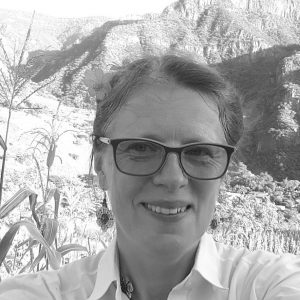
Email: katri.hirvonen-nurmi(at)helsinki.fi
Katri Hirvonen-Nurmi’s doctoral thesis is a study on the knowledge production of the Wixarika, a Mexican Indigenous people. Through commenting anthropologically on critical and community-based museology, the thesis produces new knowledge on how arts institutions can be developed in order to enhance citizens’ creativity and communal engagement. The Wixarika community museum Hirvonen-Nurmi cooperates with in her research project intends to enhance intergenerational knowledge that is often considered pertaining to the restricted spheres of ritual specialists or families, but accepted into the school curriculum by the movement of intercultural schools. Her practice as a teacher of museology in a Wixarika high school, included teaching hands-on museum practices and co-researching meanings of heritage items with the students. Hirvonen-Nurmi documents the making of the museum in her PhD thesis through the manifold social relations that form the lives of the Wixarika people. The thesis presents Viveiro de Castro’s perspecitivism as a way to understand Wixarika rituals, whilst at the same time taking on a critical lens to his theory through Terrence Turner’s writings. Katri Hirvonen-Nurmi has 20 years of work experience as a museum professional specialised in research and documentation of collections, in Helinä Rautavaara ethnographic museum, an ethnographic gallery in Espoo, Finland. In the past she has studied the history and present forms of civil-religious hierarchy among the Maya Tzeltal people of Chiapas.
Email: emmi.holm(at)helsinki.fi
My doctoral research project studies small-scale sustainable fashion brands. It looks at the social values tied to sustainable fashion making and how narratives of sustainability are being produced both materially and immaterially. My project draws its ethnographic data from two locales: Ghana and Finland. I am interested in the designing, production and marketing processes, and how these processes might reproduce and refashion intersections of ‘artisanship’, ‘authenticity’ and ‘sustainability’. Furthermore, I am particularly interested in the local value dynamics that drive the work of these brands, and how these dynamics develop within global connections of fashion that are created tangibly and intangibly on social media platforms.
My project is supervised by Dr. Tuulikki Pietilä and Prof. Timo Kaartinen, and funded by Kone Foundation.
Email: yue.hu(at)helsinki.f
In my doctoral research, I will explore the intricate lives of Chinese female bodybuilders. Their resolute pursuit of physiques characterized by “masculine” muscularity has invariably been intertwined with the discourse of women’s empowerment. However, this pursuit also occasions considerable critique and societal stigmatization due to its divergence from prevailing paradigms of femininity and bodily ideals within the Chinese context.
Central to my investigation is a nuanced examination of the multifaceted impact of bodybuilding on the lives and experiences of these individuals. I seek to discern the extent to which their engagement in bodybuilding contributes to a sense of empowerment and evaluate their responses to potential challenges and obstacles that may arise from this choice. Moreover, my research endeavors to contextualize their bodybuilding practices within broader female experiences, including significant aspects like menstruation, pregnancy, and menopause.
These embodied experiences, which have long been relegated to the periphery of discourse due to societal taboos, are now emerging as contentious subjects of public debate in China. My research thus aspires to illuminate the complex interplay between bodybuilding practices, gender dynamics, empowerment, and evolving societal perceptions, shedding light on the intricate landscape within which these Chinese female bodybuilders navigate their aspirations and challenges.
My research is supervised by Dr. Toomas Gross and Prof. Sarah Green. I completed my Master’s degree at King’s College London in 2020 and Bachelor’s degree at Wuhan University in 2019.
Email: ildze.jakunova(at)helsinki.fi
My research project studies mental health management in Latvia, and I am primarily working with young people experiencing depression and anxiety. The research explores the cultural and socioeconomic shaping of distress and its management with a focus on self-responsibility. I am interested in how people manage their mental health and what it means to manage it successfully. I am looking at a wide spectrum of mental health management practices, including self-management, not limiting my inquiry to medical practice.
In the last decades, Latvia has experienced significant economic, political, and ideological transformations that have impacted mental health and care in numerous ways, ranging from changing illness categories and health care practices to emerging discourses on mental health and its management. This research takes the opportunity to examine illness narratives, practices, discourses, and institutional frameworks in the backdrop of the historical and current contexts, including the Covid-19 crisis and the war in Europe. My research is supervised by Dr. Anni Kajanus and Prof. Sarah Green.
I hold a Master of Humanities with Distinction in Anthropology and a Bachelor of Humanities in Anthropology from the University of Latvia. Both my master’s and bachelor’s theses are developed in medical anthropology, focusing on mental health. Before starting my doctoral studies, I participated in various applied research projects on education, employment, and tolerance and worked in policy development in Latvia.
Keywords: mental health, depression, anxiety, health care, distress, culture, subjectivity, self-responsibility, self-management, emotions.
Viljami Kankaanpää-Kukkonen, M.Soc.Sc., M.S.
Email: viljami.kankaanpaa(at)helsinki.fi
In my PhD research I have studied how professional transhumant beekeepers in a small village of Fuenlabrada de los Montes in Extremadura, Spain are organizing and adapting their livelihoods to constant changes in climate, environment, bureaucracy and markets, among other things. Fuenlabrada, although a tiny remote village of less than 2000 inhabitants, is nonetheless one of the central hubs of beekeeping in Spain and in whole of Europe. The 400 professional beekeepers of the village keep hundreds of thousands of beehives all around Spain, and each beekeeping family maintains an elaborate and constantly changing network of hive locations that forms the basis of their livelihood. My research focuses on how connections and disconnections between different places and locations, in addition to different and sometimes conflicting locating logics of bureaucracy, markets, ecology, kinship and science shape these networks of hive locations.
The pollination provided by honeybees is critically important to the European agricultural sector and food security, and the global decline of pollination populations is subject to intensive scientific study and government action. In recent years, Spanish beekeepers have struggled with the effects of more frequent and severe droughts due to climate change, rising fuel prices and worsening situation with Varroa mite, an invasive parasite of the honeybee. My research focuses on the less explored social scientific aspects of this crisis in beekeeping, complementing the extensive bioscientific research on the subject, in addition to providing an ethnographic account of a very peculiar Spanish community of beekeepers and contributing to the discussion on anthropological theory of space and location.
Majority of my PhD research was performed as a part of ERC funded Crosslocations Research Group. In addition to my professional training as an anthropologist, in my research I have strived to make use of my previous training as an evolutionary ecologist in order to make an interdisciplinary contribution to the study of beekeeping and bees.
My research is supervised by Sarah Green and Anu Lounela and I’m funded by the HYMY doctoral school.
Email: salla.korhonen(at)helsinki.fi
In my Doctoral research, I examine the politics and practices of aid, charity work, communal organizing, and welfarist activism in a Palestinian refugee camp in Irbid, North of Jordan. Based on 11-month long fieldwork among the volunteers and employees of Al-Farouq Welfare Society for Orphans organization, I look at the socio-political and material consequences of local aid and how aid reworks a given community. Al-Farouq’s staff and volunteers have engaged in welfarist activism for over two decades in the context of urban poverty and state neglect. Ethnographic attention to their insights and practices sheds light on how people can organize themselves in the face of inequalities and create networks of solidarity even in precarious situations. Al-Farouq’s community-based aid offers alternatives to current humanitarian rationale and practice beyond trending ‘localization’ agenda and ‘local-washing’ development. My research also brings to attention that displaced communities often host and provide support to other refugees – in this case, other Palestinian camp residents and more recently arrived Syrian refugees. Al-Farouq’s local charity work is thus examined through the frameworks of ‘refugee-refugee-humanitarianism’ as well as ’Southern-led’ response to protracted displacement. I incorporate fieldwork drawing to the project’s research methods not just as visual documentation, but also as a way to evoke sensory experiences in the field to produce qualitatively different kind of data.
My research is supervised by Dr. Susanne Dahlgren and Prof. Sarah Green.
I hold MA in the Middle East & Mediterranean Studies and BA in Religion in the Contemporary World from King’s College London. I currently work at Startup Refugees where we support employment and entrepreneurship of asylum seekers, refugees, and other newcomers.
Key words: displacement, precarity, urban poverty, aid, charity, humanitarianism, ‘refugee-refugee-humanitarianism’, community organizing, welfarist activism, solidarity, Palestine
Email: olli.v.lindholm(at)helsinki.fi
My research focuses on the creation and implementation of alternative models for sustainable development. I am conducting my PhD project in collaboration with Indigenous Sapara and Kichwa nationalities of the Ecuadorian Amazon who are currently engaged in a struggle to defend the rainforest from the encroachment of extractive industries.
Our aim is to elucidate the relations that community members have with nonhuman beings of their territory, how these relations are built and maintained and how these relations turn into environmental policies, such as Sumak Kawsay and Kawsak Sacha.
I hold a Master´s degree in Social Sciences from the University of Helsinki, where I started studying Social Anthropology in 2013. In my Master’s thesis I analyze the changes in ethnic and class relations in Bolivia that took place during the governments of Evo Morales. Additionally, I have acted as an ethnographic consultant for both private and public organizations in Finland, Chile and Tanzania.
Key words: Alternative development, Bolivia, Coca leaf, Decolonial methodology, Ecuador, Extractivism, Indigenous cosmopolitics, Kichwa, Latin-America, Sapara, Socio-environmental conflicts, Sustainability.
Anna Klimova, M.A.
Email: anna.klimova(at)helsinki.fi
My doctoral research is focused on transition into parenthood and mechanisms of social construction of family ties in the situation of foster care in urban society of modern Russia. The research is a part of a multi-disciplinary project “A child’s right to a family: deinstitutionalization of child welfare in Putin’s Russia”, led by Dr. Meri Kulmala (Aleksanteri Institute, University of Helsinki; see: https://blogs.helsinki.fi/childwelfare/).
Since 2010s, Russia has been implementing a national-level child welfare reform which aims to increase the number of domestic adoptions, develop national foster care system, and implicates promotion of family-based care. In my research, I analyze biographical narratives, family stories, and various forms of family narratives in the framework of moral, gender, everyday social interaction, and relevant practical and institutional circumstances in order to trace values, meanings, and cultural imperatives which underlay the meaning of parenthood and kinship inmodern urban culture in Russia.
Keywords: narrative analysis, medical anthropology, digital ethnography, modern rituals, invented traditions, life scenarios, applied anthropology, self and identity, kinship, parenthood, family narratives, person and the state
Minna Kulmala, M.Soc.Sc.
Email: minna.m.kulmala(at)helsinki.fi
My research interests are on the area of religious anthropology. I am specializing in new religions and millennial movements, conversion, commitment, communality, and sacred spaces in post-Soviet Russia.
Samuli Lähteenaho, M.Soc.Sc.
Email: samuli.lahteenaho(at)helsinki.fi
In my doctoral research I am exploring the changing role of the coastline in Beirut and the relationship of the city with the sea. Through my ethnographic research focusing on the contested notions of public space and privatisation on the Beirut littoral, and changing perceptions of the sea, I discuss the changing relative value and meaning of these locations. More specifically my research looks at changing understandings of the coastline and the sea as related to environmental concerns and the notion of public in Beirut through work with civil society groups engaged in maintaining and advocating for the coastline, as well as other lay interlocutors in the city. I am also incorporating work with the real estate business in Beirut to understand the role of changing land value in transformations on the coastline. My approach suggests that infrastructure, legal frameworks, and financing are important regimes partaking in recalibrating the multiple meanings and values of the coastal landscape.
My doctoral research is part of the ‘Crosslocations – Rethinking relative location in the Mediterranean‘ research project, and my work is being supervised by Dr. Carl Rommel and Prof. Sarah Green. I hold a MSocSc from the University of Helsinki.
Keywords: public space, location, neoliberalism, value, urban change, infrastructure, sea, littoral
Email: toni.a.nieminen(at)helsinki.fi
My PhD project investigates Disabled employment in Finland. Specifically, the project examines the lives and experiences of persons with Disabilities as they navigate government institutions, workplaces, and changing policy environments. By aligning linguistic anthropology and critical disability studies, I aim to understand how the politics of language affects how Disability itself is understood and presented across these contexts. By doing so, the project seeks to contribute knowledge to the political dialogue on ableism, that is, “discrimination in favor of able-bodied people” (Linton and Bérubé 1998).
The project’s research methods combine ethnographic fieldwork—I will embed myself in locations where Disabled employees are either moving towards or engaged in wage labor—and media analysis. Thus, the study recognizes how Disabled employees together with Able-bodied allies negotiate their labour settings but also examines how representations of Disabled employees are circulated in and across various public spaces.
The project is funded by the HYMY doctoral school and is supervised by Timo Kaartinen, Elina Hartikainen and Andrew Graan.
Email: hanna.rask(at)helsinki.fi
In my doctoral project I will explore understandings of legacies of past assimilation policies on indigenous children in Canada and conceptions of intergenerational responsibility for past injustices. My research focuses on social remembering of silenced and contested histories and relates to discussions on temporal dimensions of politics of apology and reconciliation, collective and political responsibility, and integration of silenced aspects of history into public memory.
My doctoral research is supervised by Dr. Katja Uusihakala and Prof. Timo Kaartinen. I hold a M.Soc.Sc. in anthropology (2018) from the University of Helsinki.
Email: eero.saukkonen(at)helsinki.fi
My doctoral research examines the everyday lives of persons with severe physical and cognitive impairments, such as persons with profound intellectual and multiple disabilities (PIMD) in Finland. These persons, who require assistance for almost all actions from basic everyday functions onward, and whose capabilities for spoken language are usually severely impaired, do not fit Western ideals of rational and autonomous individuals, and as such have historically had their agency and even humanity questioned. In my thesis, I examine the different ways in which these persons get to live lives that accord with their individual needs and preferences, as well as how close carers, family members and friends interpret those needs and preferences and assist in fulfilling them. In this framework I explore concepts such as ‘agency’ and ‘self-determination’ that have been understood as central to a worthwhile human life, and ask how such terms might be reconceptualised to better encompass the reality of human interdependence.
Between 2019 and 2022 I was involved in the VAIKOS- research project (‘Vaikeimmin vammaisten nuorten mahdollisuudet osallisuuteen liikunnassa’) which examined the opportunities youth with severe impairments have for participation in sports and exercise in Finland, and the data gathered during the course of the project also partly informs my thesis. Currently I am funded by the Finnish Cultural Foundation. My thesis work is supervised by Prof Anni Kajanus as well as Hisayo Katsui, Associate Professor for Disability Studies, and Dr Reetta Mietola.
Keywords: disability, assisted living, personal assistance, agency, self-determination, personhood, communication, care
Email: maija-eliina.sequeira(at)helsinki.fi
In my doctoral research, I will use a cognitive anthropology approach to explore how children learn and enact inter-personal hierarchies. I am interested in how the models of hierarchies that children are exposed to in their socio-cultural environments shape their emerging cognitive capacity to reason about hierarchy. I will carry out my fieldwork on the Caribbean coast of Colombia in 2021, and will use both ethnographic and experimental methods. My supervisors are Anni Kajanus and Toomas Gross. I am currently funded by the SYLFF foundation grant.
Email: juulia.teperi(at)helsinki.fi
My doctoral research explores the journeys of healing and recovery from ’mental illness’ as inseparable from values of wellbeing and underlying notions of self and personhood. This is studied more specifically in the contemporary context of Finland, drawing from the experience of young adults who have experienced depression or anxiety like symptoms.
The aim of this study is to unpack the concept of recovery by examining how young Finns perceive and interpret their pathways towards wellbeing – what are the key elements, turning points and values that encompass this journey. Whereas recovery in medical terms is often described as an individual process, I’m interested in how it simultaneously takes place in a lived social world. Therefore my work unites experiences of distress and healing with attention to socio-structural forces. This enables critical exploration of current trajectories and values (e.g. an emphasis on individual agency) in mental health care policy.
I have previously carried out research in the Austronesian area and as a medical and psychological anthropologist I use ethnographic research in order to create comparative perspectives on ideas and practices of health and illness. Additionally, I have several years of studies in psychology with a complementary training as a therapist, currently working in Väestöliitto. Therefore my research is also an interdisciplinary contribution to the field of
mental health care.
I hold a Master’s degree in Social and cultural anthropology, from the University of Helsinki. My doctoral research is supervised by Dr. Toomas Gross and Prof. Sarah Green.
Keywords: mental health, wellbeing, healing, recovery, narrative, value, self, personhood, agency, depression, anxiety
Pilvi Vainonen, M.A.
Email: pilvi.vainonen(at)helsinki.fi
Research interests: material culture studies, museum collections, missionary work, Himalayas, South Asia
Curator at the ethnographical collections, Museum of Cultures / National Museum of Finland
Fabienne Valmond, M.A.
Email: fabienne.valmod(at)helsinki.fi
Black women with uterine fibroids, who live in Helsinki city and hinterland, Finland, and especially those from the countries south of the Sahara in Africa, are the focus of my doctoral research. This quasi-autoethnography seeks to develop an in-depth understanding of how this group perceives the disease process and associated risk factors and explore how they experience fibroids in the context of their immigrant status and the social disadvantages they are exposed to, such as discrimination. This project will develop a better understanding of the social context of this illness to help inform better treatment decisions and management of fibroids. It will also inform how people from various backgrounds discuss and negotiate health, sickness, and wellbeing. This research will contribute to ongoing discussions in medical anthropology on social suffering, well-being, health citizenship, and epistemologies in the context of migration. The anthropological focus of my research means I will be able to contribute an in-depth understanding of an illness that disproportionally affects black women, while the research findings could have a societal impact and highlight the contribution of anthropological approaches.
My research is supervised by Dr. Maarit K Forde and Dr. Tuulikki Pietilä and is currently self-funded.
I hold a Master of Arts in Anthropology from George Mason University, United States (2015); and a Bachelor of Arts in Political Science from the University of Georgia, United States (2007). Before starting my doctoral studies at the University of Helsinki, I worked as an Adjunct Professor of Anthropology and Philosophy at the University of Maryland Global Campus, Asia.
Keywords: fibroids, health, health care, medical pluralism, health citizenship, wellbeing, structural violence, intersectionality, gender, race, discrimination, immigrant, migration, Finland.
Personal forum on fibroids (work in progress)
Sanna Vellava, M.Soc.Sc.
e-mail: sanna.vellava(at)helsinki.fi
My doctoral research explores the use of scent detection dogs in medical scientific research and cancer diagnostics. It has been observed that dogs are able to smell cancer and other health conditions through samples, and this ability is now being researched also in Finland. Through multi-sited ethnographic fieldwork my research asks how dogs are emerging as, or made into new kinds of actors in medical science, how expertise and knowledge are constructed through and with dogs, and how this relates to the already established fields of medical research and diagnostics.
The project is supervised by Assoc. Prof. Minna Ruckenstein and Prof. Sirpa Tenhunen, and funded by the Doctoral School of Humanities and Social Sciences, University of Helsinki.
I hold a master’s degree in social and cultural anthropology, from the University of Helsinki.
Email: jenni.viitala(at)helsinki.fi
My research focuses on transnational mineral production and is based on multi-sited fieldwork in Finland and in Ecuador. I am interested in questions of social, economic and environmental benefits, responsibilities and rights, especially from a legal anthropological perspective. I completed my Master’s degree in Social and Cultural Anthropology at the University of Tampere in 2017. My previous research projects have focused on resistance against a gold mining project in Peru and on corruptive practices of state-funded indigenous leadership in Colombia. I am currently an external member of a fellowship group at the Max Planck Institute for Social Anthropology, which brings together anthropologists and legal scholars. My supervisors are Reetta Toivanen and Anu Lounela, and I am funded by the HYMY doctoral school.
